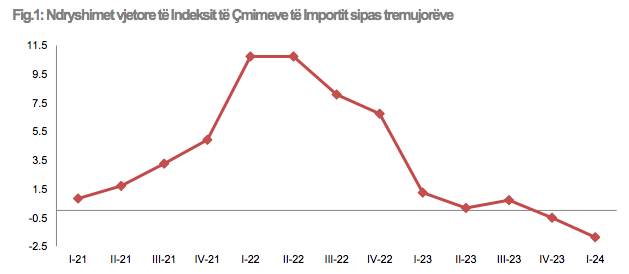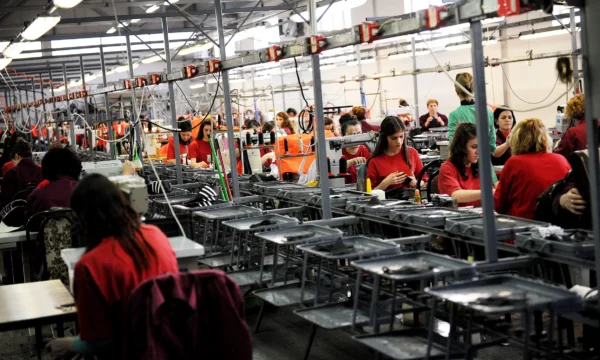Cheaper imports offer relief despite rising domestic production costs in Albania

According to data published by INSTAT, domestic entities are facing a continual increase in production costs. In the first quarter of this year, the Producer Price Index increased by 2.8% compared to the same period in 2023. The processing costs of food products increased by 4.1%, tobacco by 4.5%, and beverage production costs by 3.8%. INSTAT reports that domestically-produced goods are becoming more expensive compared to imported goods, particularly due to a stronger domestic currency.
Why is this relevant
The INSTAT data highlights rising domestic production costs and cheaper import prices, creating competitive pressure on local producers, impacting consumer prices, and indicating persistent inflationary pressures in the local economy, despite decreasing import costs.
The Import Price Index, however, saw a decrease of 1.9% for the first quarter of 2024, compared to the same period in 2023. Imported goods are significantly competing with domestic production. During the first four months of this year, the country imported food and beverages worth 47.3 billion lek, while exporting products valued at 17.2 billion lek, including food, beverages, and tobacco. The surge in imports into the domestic market is fueled by both increased consumption and their lower costs compared to domestic production. The latter has been caused predominantly by the strengthening of Albanian Lek, making imported goods and services cheaper for Albanian consumers. The index measuring the prices of domestic products at the first stage of production reached 129.5% during the January-March period.
The inflationary crisis seems to be passing for businesses in Albania, but not yet for the country’s citizens. INSTAT data reveal that the Import Price Index has hit its lowest point in two years, precisely at 108.1%, signaling a potential turning point. Although costs of imported raw materials and equipment are showing signs of moderation, this hasn’t translated into cheaper product prices on shelves. Sectors catering to daily consumption are directly affected by inflationary pressures, resulting in higher consumer prices.
The Bank of Albania has identified domestic inflation as a risk for further increases in prices, due to internal inflationary pressures remaining high as a result of higher demand for employment, wage increases in both the public and private sectors, and rising domestic production costs.


